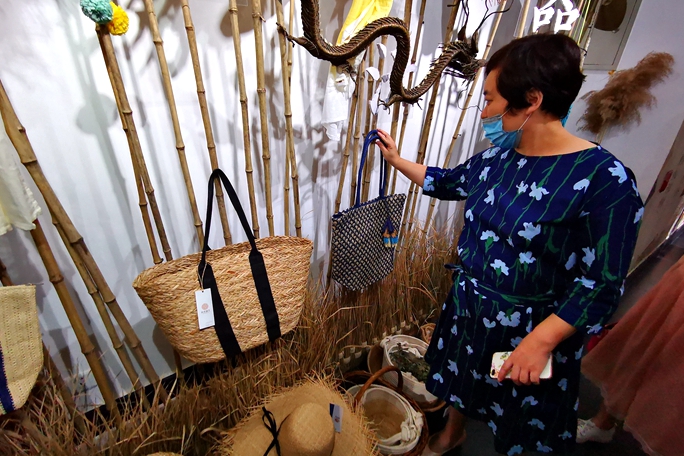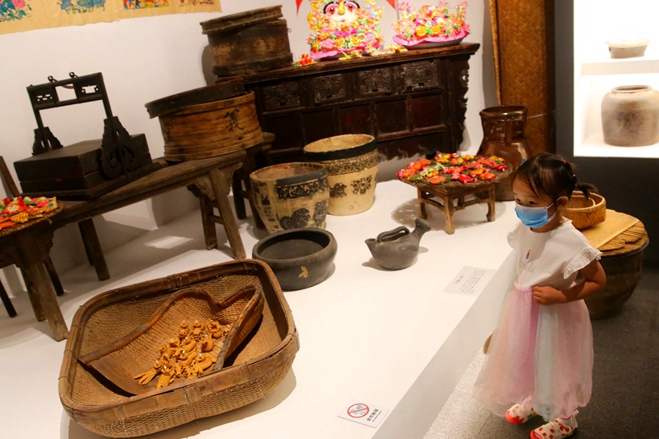Heroic 'mother' raises 40 children of soldiers during WWII
JINAN -- At 104 years old Zhang Shuzhen passed away, and her family received a condolence letter jointly written by dozens of people who claimed to be her "sons" and "daughters."
Zhang is one of the heroic mothers of Yimeng, a group of women who voluntarily took care of soldiers and their children in the Yimeng Mountains, East China's Shandong province, during WWII.
In the summer of 1939, a number of Eighth Route Army soldiers of the Communist Party of China settled down in Yimeng area, which was a famous base for the Party-led armed struggle against Japanese invasion.
Amid the flames of war, many children of the soldiers were left unattended.
Zhang and her mother-in-law took the responsibility for looking after the children. They adopted over 40 children, eight of whom were orphaned after their parents died in battle. All the children were under 10, and the youngest one was only three days old, according to Zhang's daughter Yu Aimei.
In order to protect the children from the Japanese invaders, Zhang and her family dug a big cellar, a facility which usually used by local farmers to store sweet potatoes. She would hide the children there when the Japanese soldiers entered the village searching for Chinese soldiers.
Local villagers suffered from poverty during the war. Zhang would let the adopted children share her breast milk with her own children. She also persuaded other women in the village to breast feed the soldiers' children.
Four of Zhang's own children died from malnutrition, but she returned all the adopted children safe and sound to their parents when the troops withdrew from the area three years later.
"Mother said she had to prioritize the adopted children while feeding us, because their parents were risking their life for the country, and those children could be the only descendants of a family," Yu said.
Zhang caught Parkinson disease later in her life. Sometimes she lost her memory. Her son Yu Qianlin recalled that she often woke up at night and opened the front door murmuring, "what if some passing-by soldiers want to come in?"
Sometimes, she would force her son to cook kilograms of noodles, saying she would serve them to the soldiers.
Zhang is just one of the countless women on the revolutionary base who offered all they had to support the soldiers. They were given the nickname "Hongsao," meaning sister-in-law of Red Army soldiers.
Out of her love for the army and her passion for the revolution, Zhang Shuzhen became a member of the CPC in March 1939.
In addition to raising the soldiers' children, Zhang took care of wounded soldiers and worked as an advocator for the war of resistance against Japanese aggression. She persuaded over 20 other local villagers to join the CPC.
On Dec. 19, Zhang asked her daughter to bring her the three party emblems she had cherished for long. On the next morning, she passed away holding her favorite emblem in hand.
Zhang's heroic deeds have been widely remembered, and her children are determined to carry on her spirit.
Yu Aimei has joined with a number of other women, making clothes for soldiers and telling stories of the heroic women of Yimeng.
"Although they are stories of bygone days, the spirit of Hongsao will always be a source of inspiration for generations to come," she said.

 Shandong Culture and Tourism Consumption Season
Shandong Culture and Tourism Consumption Season Culture, tourism sectors pick up in Shandong as epidemic wanes
Culture, tourism sectors pick up in Shandong as epidemic wanes

